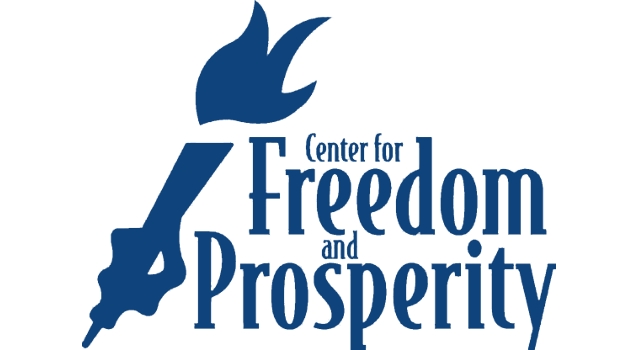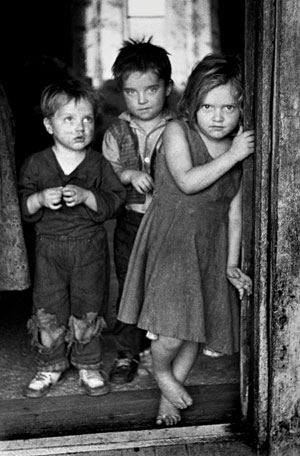I’ve written and pontificated about the problem of government-created dependency and how the welfare state traps people in poverty.
I also shared this dramatic chart showing how redistribution programs create shockingly high implicit marginal tax rates for those with modest incomes.
But when a liberal writer for the New York Times basically comes to the same conclusion, that’s a sign that there may finally be some consensus about the need for reform.
Here’s some of what Nicholas Kristof wrote, beginning with an acknowledgement of the welfare state’s perverse incentives.
This is what poverty sometimes looks like in America: parents here in Appalachian hill country pulling their children out of literacy classes. Moms and dads fear that if kids learn to read, they are less likely to qualify for a monthly check for having an intellectual disability. …This is painful for a liberal to admit, but conservatives have a point when they suggest that America’s safety net can sometimes entangle people in a soul-crushing dependency. …Some young people here don’t join the military (a traditional escape route for poor, rural Americans) because it’s easier to rely on food stamps and disability payments. Antipoverty programs also discourage marriage: In a means-tested program like S.S.I., a woman raising a child may receive a bigger check if she refrains from marrying that hard-working guy she likes. Yet marriage is one of the best forces to blunt poverty. In married couple households only one child in 10 grows up in poverty, while almost half do in single-mother households. Most wrenching of all are the parents who think it’s best if a child stays illiterate, because then the family may be able to claim a disability check each month.
He then gives an example of the SSI program for kids and how it has ballooned over time.
About four decades ago, most of the children S.S.I. covered had severe physical handicaps or mental retardation that made it difficult for parents to hold jobs — about 1 percent of all poor children. But now 55 percent of the disabilities it covers are fuzzier intellectual disabilities short of mental retardation, where the diagnosis is less clear-cut. More than 1.2 million children across America — a full 8 percent of all low-income children — are now enrolled in S.S.I. as disabled, at an annual cost of more than $9 billion. That is a burden on taxpayers, of course, but it can be even worse for children whose families have a huge stake in their failing in school. Those kids may never recover: a 2009 study found that nearly two-thirds of these children make the transition at age 18 into S.S.I. for the adult disabled. They may never hold a job in their entire lives and are condemned to a life of poverty on the dole — and that’s the outcome of a program intended to fight poverty.
By the way, you won’t be surprised to learn that the disability program for adults also has expanded dramatically. The simple lesson (though folks in Washington seem oblivious) is that if you subsidize self-destructive behavior, you’ll get more of it.
Kristof is honest enough to recognize the problem, but that doesn’t mean he agrees with libertarians about the solution.
I don’t want to suggest that America’s antipoverty programs are a total failure. On the contrary, they are making a significant difference. Nearly all homes here in the Appalachian hill country now have electricity and running water, and people aren’t starving. …kids…have replaced the elderly as the most impoverished age group in our country. Today, 22 percent of children live below the poverty line. Of American families living in poverty today, 8 out of 10 have air-conditioning, and a majority have a washing machine and dryer. Nearly all have microwave ovens. What they don’t have is hope. …A growing body of careful research suggests that the most effective strategy is to work early on children and education, and to try to encourage and sustain marriage. …Early interventions are not a silver bullet, and even programs that succeed as experiments often fall short when scaled up. But we end up paying for poverty one way or another, and early childhood education is far cheaper than adult incarceration. …Look, there are no magic wands, and helping people is hard.
I don’t think his hopes of early childhood education are a silver bullet, particularly if it results in a program run from Washington. But I’ll also admit that libertarians don’t really have a solution.
To a large extent, this is an intergenerational problem, with kids learning bad habits from adults. And that’s true for inner-city blacks and rural whites, as well as every demographic in between. I’m happy to make the case that the welfare state helped to create the problem (or at least subsidized it and made it worse), but simply ending the welfare state probably won’t make everything better.
It’s a lot easier to squeeze the toothpaste out of the tube than to put it back in. Once social capital erodes, it very difficult to restore it. That’s why it’s a mistake to create new programs in the first place. As this famous set of cartoons illustrates, welfare state programs always start small, but that’s not where they end up.



